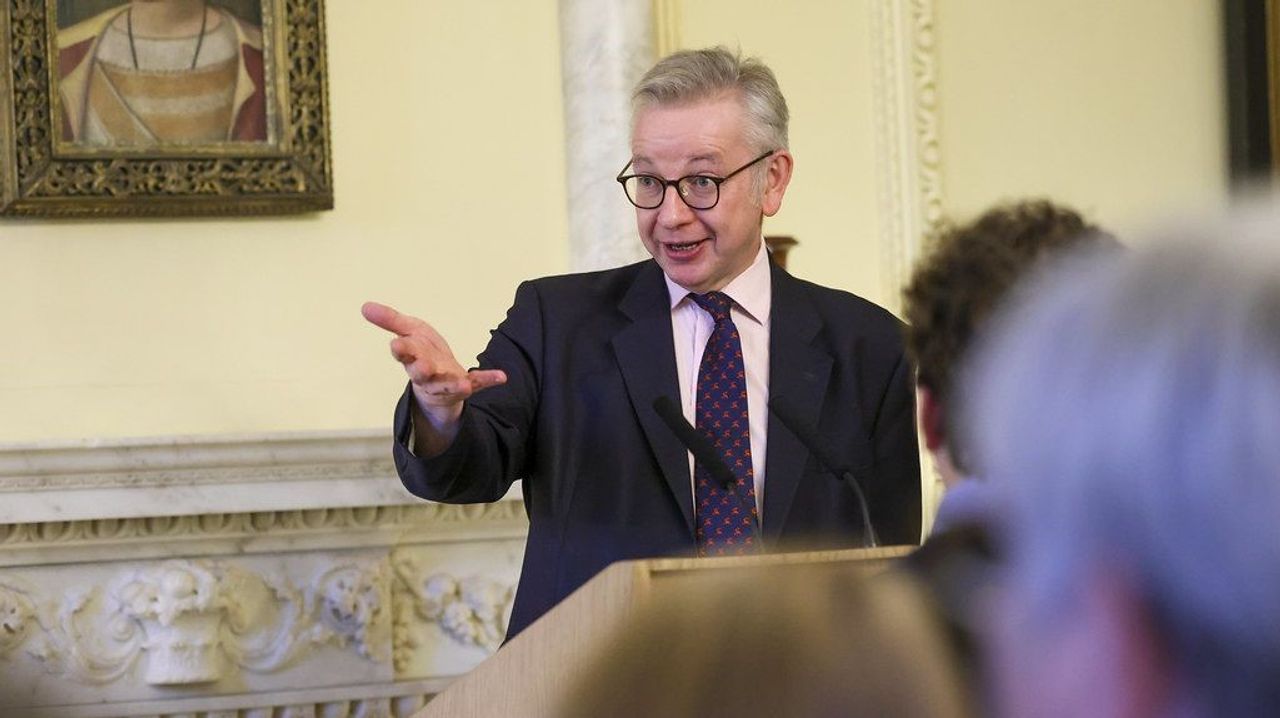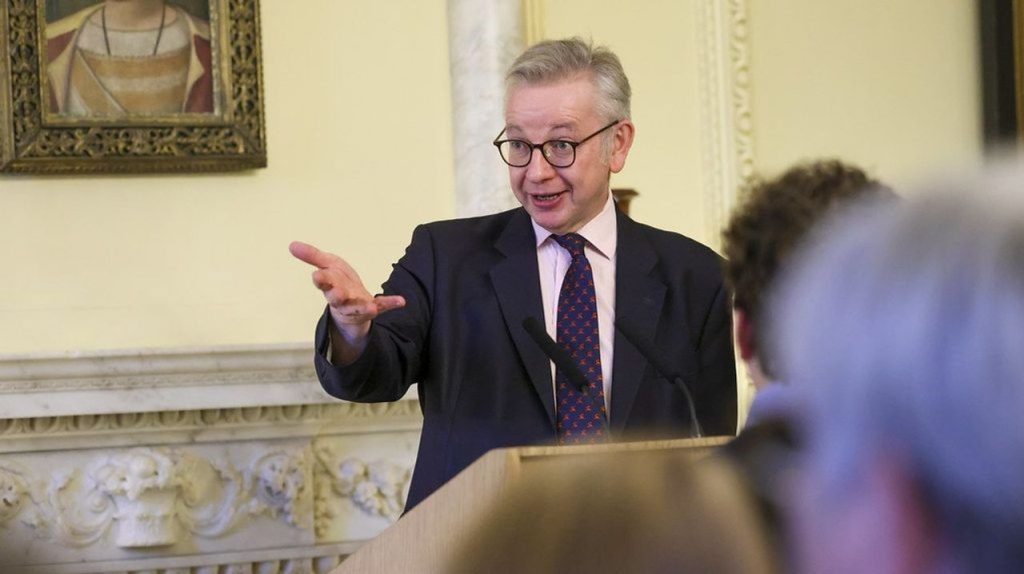
Definition of “extremism” broadened: UK government prepares crackdown on political opposition
By Robert Stevens
The proposed definition is deeply authoritarian, providing a pretext for the suppression of virtually any form of political opposition and eviscerating the rights to free speech and political association.
The British government is broadening its definition of “extremism”. On Sunday, the Observer revealed that Communities Secretary Michael Gove is close to finalising a review of “non-violent extremism” which began in spring this year.
According to the newspaper, which has not released the full document, extremism will be defined as “the promotion or advancement of any ideology which aims to overturn or undermine the UK’s system of parliamentary democracy, its institutions and values” or to “threaten the rights of individuals or create a permissive environment for radicalisation, hate crime and terrorism”.
It will also include, “Sustained support for, or continued uncritical association with organisations or individuals who are exhibiting extremist behaviours.”

The existing definition of extremism is “active opposition to fundamental British values, including democracy, the rule of law, individual liberty and the mutual respect and tolerance of different faiths and beliefs”. This was published in 2011 as part of the antidemocratic “Prevent” strategy, enforced in schools and throughout the public sector under the Counter-Terrorism and Security Act 2015, and used to demonise Muslims in particular.
Every year, thousands of people are referred to Prevent, a total of 6,406 in the 12 months to March 2022, a 30 percent increase on the previous year.
In the document’s own words, the new definition broadens the focus from “active opposition” to so-called “British values” to “behaviours that enable the spread of extremist ideology.”
This is a deeply authoritarian definition, providing a pretext for the suppression of virtually any form of political opposition and eviscerating the rights to free speech and political association.
The Observer reports that one document “lists a number of organisations which it considers would be ‘captured’ by the new definition.” Among them are “The Muslim Council of Britain (MCB), Palestine Action and Mend (Muslim Engagement and Development).” Palestine Action has helped to organise numerous protests in recent years against Israel’s oppression of the Palestinians, including during the ongoing genocidal assault on Gaza.
Ilyas Nagdee, Amnesty International UK’s racial justice director, explained that the existing definition of extremism “is already being applied so broadly it seeks to effectively hinder people from organising and mobilising. The proposed definition takes this even further and could criminalise any dissent.”
The Tory government has sought to broaden the definition of extremism for years, specifically to outlaw “left-wing extremism”. This has been an over-riding pre-occupation of successive prime ministers and home secretaries.
In May 2017, the Commission for Countering Extremism (CCE) was announced by then Conservative Prime Minister Theresa May. Three years prior, as home secretary, May promised that a Counter Extremism Strategy would tackle “the whole spectrum of extremism, violent and non-violent, ideological and non-ideological.”
In 2019, the World Socialist Web Site explained how a report on “left-wing extremism” submitted to the Commission “set out to brand as suspect views held by millions of people”, among them that “The greatest threat to democracy has always come from the far right” and that “Zionism is a form of racism”.
In February 2021, Prime Minister Boris Johnson’s Conservative government announced a review into “left-wing extremism” to be led by former Labour MP John Woodcock, now Baron Walney, in his post as UK Special Envoy for Countering Violent Extremism.
Last month, as anti-Gazan war protests escalated in Britain, with successive national demonstrations in London attracting 150,000, then 350,000, then 500,000 people, head of the Metropolitan Police Mark Rowley declared, “I think there is scope to be much sharper in how we deal with extremism in this country. The law was never designed to deal with extremism. There’s a lot to do with terrorism and hate crime but we don’t have a body of law that deals with extremism and that is creating a gap.”
What it would mean to close the gap is indicated by the dictatorial statements of government officials in regard to the protests.
Fascistic Home Secretary Suella Braverman has repeatedly denounced the national demonstrations as “hate marches”, and described participants in a Times piece on Wednesday as “pro-Palestinian mobs.” She declared, “The issue is how do we as a society police groups that insist that their agenda trumps any notion of the broader public good—as defined by the public, not by activists.”
Braverman’s ravings follow those of Commissioner for Countering Extremism Robin Simcox, who wrote in the Times, “Hate marches in Britain are a wake-up call to all decent people.” Anti-war protesters, he said, had “been careful to construe their public displays of support just below the legal threshold for hate crime, glorification of terror, or public order offences… exploiting one of our proudest British values, freedom of expression, to pursue a shameful extremist agenda, the normalisation and promotion of antisemitism.”
Simcox and the home secretary were joined in their slanderous denunciations by former prime minister Boris Johnson. During a trip to Israel to offer the Netanyahu regime his support, he advocated for the banning of the planned November 11 march, accusing protestors of demonstrating “in favour of an anti-Semitic pogrom”.
The Campaign Against Antisemitism, a right-wing Zionist organisation, said the Met should ban the upcoming march under section 13 of the Public Order Act 1986, but that if it was allowed then Braverman should invoke special powers to direct London’s mayor to call in the military to reinforce the police.
Unable to dismiss the overwhelming opposition within the population to Israel’s war of annihilation, the police announced Wednesday evening that Saturday’s march would go ahead. The home secretary can only intervene to ban the march if recommended to do so by the Met.
Prime Minister Rishi Sunak responded by reiterating his personal opposition to the “disrespectful” march and stressing that Met Police Commissioner Mark Rowley had “committed to keep the Met police’s posture under constant review based on the latest intelligence about the nature of the protests.”
While currently unable to prevent this Saturday’s march from proceeding, the hysterical attack on anti-war protestors and plans to massively broaden what can be defined as “extremism” are an urgent warning of the direction of travel in the ruling class—hellbent on crushing all forms of dissent to impose its agenda of war and austerity. In this, they can rely totally on a pro-war, pro-“law and order” Labour Party, expected to win a general election next year.
It is no coincidence that rolling out a new dragnet definition of extremism takes place at this juncture, with Britain deeply involved in NATO’s war against Russia in Ukraine and Israel’s attack on Gaza. With millions on the streets around the world to protest Israel’s genocide, the ruling class fears the development of a mass, international anti-war movement. Above all, it is terrified that such a movement will take up a socialist perspective, animating a working class which has engaged in major battles over wages, working conditions and job losses in the last two years.
A raft of legislation is already on the statute book to deny this emerging movement its democratic rights to organise and promote its perspective—the Public Order Act (2023), the Police, Crime, Sentencing and Courts Act (2022), the Online Safety Bill (2023) and the Strikes (Minimum Service Levels) Act (2023).
In the name of combatting “extremism”, even wider repression is planned, including blanket proscriptions on meetings and protests and the shutting down of whole organisations. As is demonstrated internationally, the ultimate target of this campaign is a socialist movement of the working class and young people against capitalism and imperialist war.
[This article was originally published by the WSWS here on November 09, 2023]

